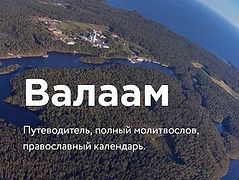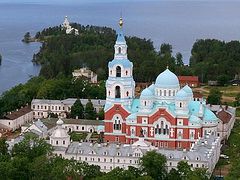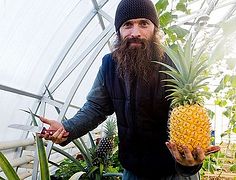Valaam, May 12, 2020
In Old Valaam, fish farming was one of the main and most profitable branches of the monastery economy. Fish cages appeared in various places of the archipelago during the monastery’s heyday in the mid-19th century, demonsrating the monastery’s skillful use of natural resources in the northern climate.
Now, that old tradition is being revived and reinvigorated.
The monastery initially resumed the tradition of growing fish in 2002, though by 2018, it was obvious that the monastery’s fishing technology was in need of a serious update, as the trout cages were constantly falling into disrepair due to the frequent strong winds and storms, with the monastery losing most of its commercial trout, reports the monastery website.
A decision was then made to completely reconstruct the monastery’s trout farm, and with the help of monastery benefactors, the project was completed in just 6 months, implemented in accordance with modern environmental, sanitary and hygienic requirements and other standards for cage farms in Russia.
The renewed trout farm, with the possibility of growing from 90 to 165 tons of high-quality commercial rainbow trout, was blessed by Archimandrite Elijah on May 3. The farm will provide food for the brethren pilgrims, and guests of the monastery.
The farm currently includes 18 cages with a total area of more than 4,100 square yards. The cages are resistant to icing and to waves up to 8 ft.
The farm also includes a hangar for the storage of feed and raw materials, utility rooms, an operator’s room, and a security panel. There is also an incubator and laboratory with a pool for growing young fish.
In the future, it is also planned to open a small production shop for making trout fillets, dumplings, cutlets, steaks, and many other products.
The brethren of Valaam are also engaged in many other endeavors. In addition to the more typical vegetables and herbs—cucumbers, tomatoes, lettuce, parsley, dill, and onions—the brotherhood grows pineapples. They also harvest grain, make their own cheeses, and breed peacocks.






